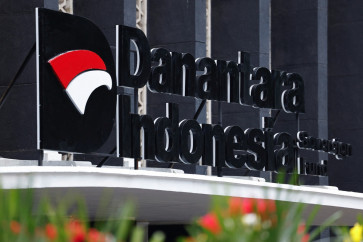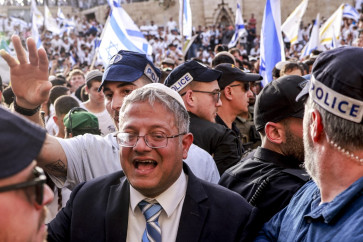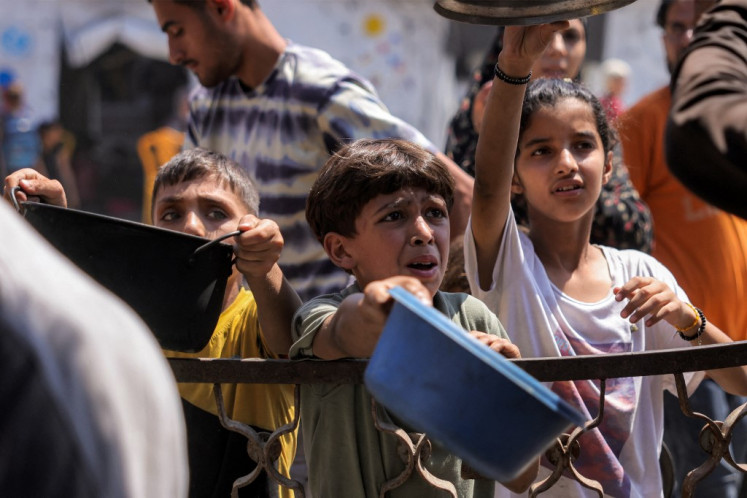Popular Reads
Top Results
Can't find what you're looking for?
View all search resultsPopular Reads
Top Results
Can't find what you're looking for?
View all search resultsRI-Norway talks: Time to harvest
Indonesia and Norway marked the 10th anniversary of their human rights dialogue in Oslo on June 21-22, 2011
Change text size
Gift Premium Articles
to Anyone
I
ndonesia and Norway marked the 10th anniversary of their human rights dialogue in Oslo on June 21-22, 2011.
Norwegian Foreign Minister Jonas Gahr Støre and Retno Marsudi, Indonesian Foreign Ministry’s Director-General for European and American Affairs, who was representing Foreign Minister Marty Natalegawa, jointly opened the event. In his opening, Støre said the dialogue was a landmark of bilateral relations between the two countries and laid the groundwork for cooperation on many subjects, such as non-proliferation, climate, health and foreign policy.
As a testimony to this first decade of the dialogue and as a lesson learned for a country in transition, especially for Middle Eastern and North African states, this experience could be a comparative perspective for their immediate recoveries.
In my capacity as a deputy minister, in 2000 I accompanied then Indonesian human rights minister Hasballah Saad for an informal meeting with his Norwegian counterpart Hilde F. Johnson to discuss various human rights issues and explored the possibilities of cooperation and an annual dialogue on human rights.
The visit to Norway was short due to political dynamics at home at that time, but the bilateral meeting provided a platform for human rights cooperation between the two countries. Indonesia then was similar to Egypt or Tunisia today. Indonesia truly engaged in a life-and-death struggle with human rights, with bloodshed in Ambon, Poso and a separatist movement in Aceh. Luckily, Indonesia survived as a nation without suffering too many sacrifices, unlike the fates of the former Soviet Union and Yugoslavia.
The disintegration of the Soviet Union in 1991 was triggered by the last Soviet leader, Mikhail Gorbachev and his policy to restructure Soviet political and economic systems and pursue greater openness and transparency within all government institutions, which ultimately weakened the central government.
Similarly, the partition of Yugoslavia in 1991 apparently stemmed from the loss of a unifying leader, Marshal Tito. Under Tito’s authoritarian Communist rule, Yugoslavia enjoyed a relatively long period of security and inter-ethnic peace and prosperity but all this gradually disintegrated after Tito’s death in 1980.
Like the Soviet Union and Yugoslavia, Indonesia had made fundamental changes and lost its charismatic leader but remained strongly united and integrated. Amazingly, Indonesia has now fully recovered. The latest World Economic Forum 2011 said Indonesia displayed the strongest progress among G-20 countries, exceeding India, South Africa, Brazil and Russia.
After a decade of dialogue, I reflected upon the different stages of Indonesian development by comparing the agenda of the first and the 10th dialogues, respectively.
The first dialogue in Jakarta on April 29-30, 2002, addressed the following issues: (1) corruption and economic crimes, (2) human rights courts, (3) the role of the judiciary in democracy, (4) human rights education, and (5) human rights, regional policy and civil society. The latest dialogue addressed: (1) human rights and the armed forces, (2) the promotion and protection of the rights of children in conflict with the law, and (3) interfaith dialogue and the culture of tolerance.
Each agenda item was thoroughly discussed and at the end of each dialogue, concrete commitments were jointly declared by both delegations.
The reason to propose graft and economic crimes in the first dialogue was simply because Indonesia had to establish an independent Corruption Eradication Commission (KPK) to confront endemic corruption for an immediate economic recovery.
Since its inception late in 2003, the KPK has investigated, prosecuted and sent those found guilty of corruption to jail. Probably Indonesia is among only a few countries in the world that prosecute and imprison their ministers, governors, mayors, legislators, businessmen, judges, military, police and ambassadors, as well as the governor and deputy governors of its own central bank for graft.
The success of the KPK has helped Indonesia recover gradually and manage its democratization process with greater decentralization, uphold the supremacy of law and rehabilitate the economy. Great achievements have been made in corruption eradication, despite some cases that remain unsolved, such as the Bank Century bailout and the SEA Games project saga.
The breakthrough in tackling corruption was, in my view, largely inspired by the dialogue. As an indication of the genuine commitment involved, at the fourth dialogue in Oslo on April 27-29, 2005, Indonesia sent a high-ranking delegation, including former minister of justice Hamid Awaludin, chief justice of the Supreme Court Bagir Manan, attorney general Abdul Rachman Saleh, KPK deputy chairman Amien Sunaryadi, House of Representatives members, media, NGOs, etc.
The first decade of the dialogue has been completed alongside remarkable achievements in the dynamic transition of Indonesia from authoritarian rule to democracy. The historic choice in 1998 appeared to be the point of no return. May it be proved that through the dialogue, Indonesia can share with the world that there is no contradiction between democracy, human rights and Islamic values. May Indonesia remain one of the largest democracies in the world and a shining example for all countries in transition.
The writer is a professor at State University of Jakarta, one of the architects of the first human rights dialogue between Indonesia and Norway.










